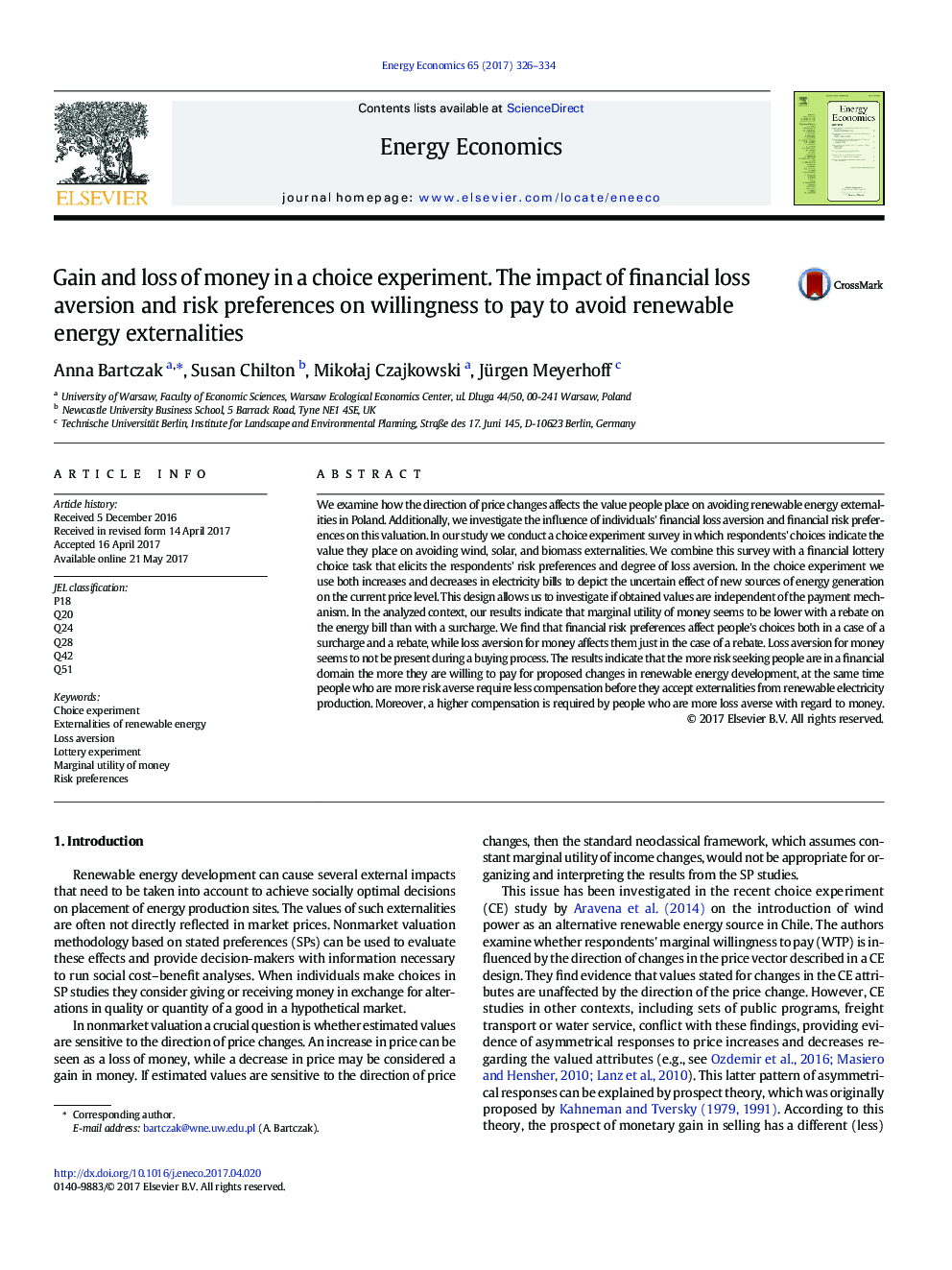| کد مقاله | کد نشریه | سال انتشار | مقاله انگلیسی | نسخه تمام متن |
|---|---|---|---|---|
| 5063817 | 1476699 | 2017 | 9 صفحه PDF | دانلود رایگان |
- We investigate the effect of price direction changes on the value on renewable energy externalities.
- We examine the influence of individuals' financial loss aversion and risk preferences on this valuation.
- Marginal utility of money is lower with a rebate than with a surcharge.
- The influence of risk preferences was significant for both, income increase and decrease.
- Loss aversion for money seems to not be present during a buying process.
We examine how the direction of price changes affects the value people place on avoiding renewable energy externalities in Poland. Additionally, we investigate the influence of individuals' financial loss aversion and financial risk preferences on this valuation. In our study we conduct a choice experiment survey in which respondents' choices indicate the value they place on avoiding wind, solar, and biomass externalities. We combine this survey with a financial lottery choice task that elicits the respondents' risk preferences and degree of loss aversion. In the choice experiment we use both increases and decreases in electricity bills to depict the uncertain effect of new sources of energy generation on the current price level. This design allows us to investigate if obtained values are independent of the payment mechanism. In the analyzed context, our results indicate that marginal utility of money seems to be lower with a rebate on the energy bill than with a surcharge. We find that financial risk preferences affect people's choices both in a case of a surcharge and a rebate, while loss aversion for money affects them just in the case of a rebate. Loss aversion for money seems to not be present during a buying process. The results indicate that the more risk seeking people are in a financial domain the more they are willing to pay for proposed changes in renewable energy development, at the same time people who are more risk averse require less compensation before they accept externalities from renewable electricity production. Moreover, a higher compensation is required by people who are more loss averse with regard to money.
Journal: Energy Economics - Volume 65, June 2017, Pages 326-334
